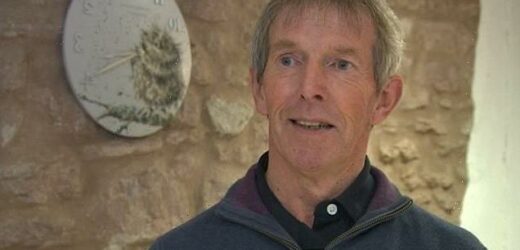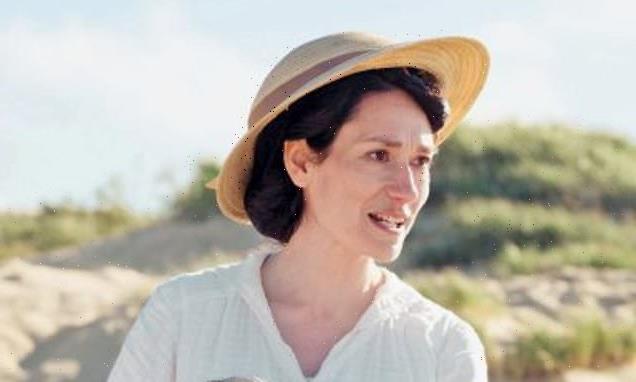Brain implant helps reverse symptoms of Parkinson’s in first patient to receive the treatment as part of medical trial
- A Parkinson’s patient has had his symptoms reversed by a device implanted into his brain, the first person to receive the treatment in a year-long trial
- Tony Howells, treated in a hospital in Bristol, called the treatment ‘amazing’
- It works by delivering electrical impulses to damaged areas of the brain
- There is no cure for Parkinson’s, so the treatment could prove revolutionary
A Parkinson’s patient has had his symptoms reversed by a tiny device implanted into his brain.
Tony Howells, the first person to receive the treatment in a trial, said the impact was ‘amazing’.
Southmead Hospital in Bristol is believed to be the first in the world to implant the tiny deep brain stimulation (DBS) device.
Tony Howells, a Parkinson’s patient has had his symptoms reversed by a device implanted into his brain. Mr Howells, pictured, had the device implanted in 2019. He told the BBC that before the operation, he tried to go for a Boxing Day walk but could only get 200 yards from the car. 12 months later, he went on Boxing Day again and went for 2.5 miles. ‘It was amazing,’ he said
It works by delivering electrical impulses to damaged areas of the brain.
Mr Howells, pictured, had the device implanted in 2019. He told the BBC that before the operation, he tried to go for a Boxing Day walk but could only get 200 yards from the car.
‘Then after the operation, which was 12 months later, I went on Boxing Day again and we went for 2.5 miles,’ he said. ‘It was amazing.’
There is no cure for Parkinson’s disease, which is a long-term degenerative disorder of the nervous system.
Symptoms involve involuntary trembling, slow movement and stiff and inflexible muscles.
Mr Howells said: ‘You can’t understand how frustrating [Parkinson’s] is until it happens to you.
‘Just doing your shoelaces up is a major operation… it affects your everyday life no end.’
He said being able to play golf again and ‘do things a lot quicker than I could before’ had helped him ‘no end’.
There is no cure for Parkinson’s, so the treatment could prove revolutionary. Most people develop symptoms when they are over 50 but about 1 in 20 sufferers experience them when they are under 40. The new DBS system, the smallest ever created, involves a tiny battery system for the device implanted into the skull. It then delivers electrical impulses to targeted areas of the brain
Most people develop symptoms when they are over 50 but about 1 in 20 sufferers experience them when they are under 40.
DBS surgery currently involves implanting a fairly large battery, like a pacemaker, into the chest or stomach area which is connected to wires that run under the skin into the brain.
The new DBS system, the smallest ever created, involves a tiny battery system for the device implanted into the skull. It then delivers electrical impulses to targeted areas of the brain.
It takes just three hours to carry out the new operation, about half the time it used to. The current trial in Bristol concludes next year.
Source: Read Full Article




